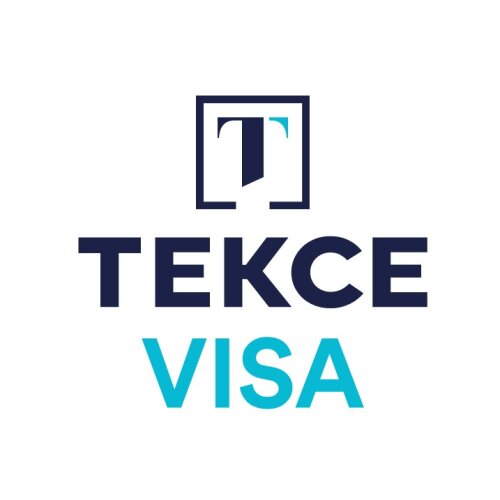Best Lawyers in Turkey
Share your needs with us, get contacted by law firms.
Free. Takes 2 min.
Or refine your search by selecting a city:
List of the best lawyers in Turkey
Turkey Legal Questions answered by Lawyers
Browse our 11 legal questions in Turkey and read the lawyer answers, or ask your own questions for free.
- Subject: Follow-up – Additional clarification under H&C considerations
- Hello again, Thank you very much for your thoughtful response. I would like to provide a brief additional clarification to better reflect my situation under Humanitarian & Compassionate (H&C) considerations. I am a minor currently residing in Turkey, experiencing serious psychological and educational difficulties due to domestic violence, neglect, and... Read more →
-
Lawyer answer by Ascendance International Consulting (A-I-C)
Thank you for providing additional context regarding your case. Your situation sounds incredibly difficult, and I appreciate the courage it takes to seek the right support and legal guidance. Given your age, vulnerability, and the ongoing struggles you've faced in...
Read full answer - Subject: Follow-up – Additional clarification under H&C considerations
- Hello again, Thank you very much for your thoughtful response. I would like to provide a brief additional clarification to better reflect my situation under Humanitarian & Compassionate (H&C) considerations. I am a minor currently residing in Turkey, experiencing serious psychological and educational difficulties due to domestic violence, neglect, and... Read more →
-
Lawyer answer by Ascendance International Consulting (A-I-C)
Thank you for providing additional context regarding your case. Your situation sounds incredibly difficult, and I appreciate the courage it takes to seek the right support and legal guidance. Given your age, vulnerability, and the ongoing struggles you've faced in...
Read full answer - Subject: Follow-up – Additional clarification under H&C considerations
- Hello again, Thank you very much for your thoughtful response. I would like to provide a brief additional clarification to better reflect my situation under Humanitarian & Compassionate (H&C) considerations. I am a minor currently residing in Turkey, experiencing serious psychological and educational difficulties due to domestic violence, neglect, and... Read more →
-
Lawyer answer by Ascendance International Consulting (A-I-C)
Thank you for providing additional context regarding your case. Your situation sounds incredibly difficult, and I appreciate the courage it takes to seek the right support and legal guidance. Given your age, vulnerability, and the ongoing struggles you've faced in...
Read full answer
Turkey Legal Articles
Browse our 23 legal articles in Turkey written by expert lawyers.
- Legal Remedies for Foreigners in Turkish Rental Disputes
- For residential lease renewals after July 1, 2024, the 25% rent increase cap has expired; increases are now limited by the 12-month average of the Consumer Price Index (TÜFE). Landlords cannot evict tenants without a valid legal ground defined in the Turkish Code of Obligations, even if the lease term... Read more →
- Legal Remedies for Breach of Export Contracts in Turkey
- Mandatory mediation is a legal prerequisite for nearly all commercial litigation involving monetary claims in Turkey. Foreign companies can initiate debt collection proceedings (İcra Takibi) without a court judgment to speed up the recovery of unpaid invoices. Interim injunctions are available to freeze a Turkish debtor's assets before or during... Read more →
- Turkey KVKK Compliance: A Guide for Global Businesses
- Mandatory Registration: Foreign data controllers targeting the Turkish market or monitoring Turkish residents must register with the VERBIS system before processing data. 2024 Reform: Recent amendments to the KVKK have aligned Turkish cross-border data transfer rules more closely with the EU's GDPR, introducing Standard Contractual Clauses (SCCs). Criminal Liability: Unlike... Read more →
About Hiring a Lawyer in Turkey
Hiring a lawyer in Turkey involves several steps and considerations to ensure you obtain competent legal representation. The legal profession in Turkey is regulated, and lawyers are registered with local bar associations. To hire a lawyer, individuals should start by defining their legal needs and then seek recommendations or perform research to find lawyers who specialize in the relevant area of law. Initial consultations are often available to discuss your case, after which you can decide whether to hire the lawyer based on their expertise, experience, and fee structure. Lawyers in Turkey generally require a retainer fee, and their services are billed on an hourly rate or as a fixed fee, depending on the nature of the legal services required.
Why You May Need a Lawyer
Individuals may require legal assistance in Turkey for various reasons. Common situations include:
- Real estate transactions: Legal advice is often required for purchasing or selling property.
- Corporate law: Businesses may need lawyers for incorporation, contracts, and compliance matters.
- Family law: Divorce, custody arrangements, and inheritance issues typically require a lawyer's assistance.
- Criminal defense: Individuals accused of crimes will need legal representation.
- Dispute resolution: Lawyers can assist in negotiations, mediations, and court proceedings.
- Immigration: Legal help may be needed for visas and residency permits.
Local Laws Overview
Turkey's legal system is based on a civil law framework, heavily influenced by European continental systems. Key aspects relevant to legal practitioners include:
- Civil Code: Governing family law, property rights, contracts, and obligations.
- Penal Code: Outlining criminal offenses and penalties.
- Commercial Code: Regulating business operations and corporate governance.
- Labor Law: Defining employer-employee relations and workers' rights.
- Administrative Law: Covering interactions with government authorities.
Frequently Asked Questions
1. How do I verify a lawyer's credentials in Turkey?
You can verify a lawyer's credentials by checking their registration with the local bar association.
2. What should I consider when choosing a lawyer?
Consider the lawyer's expertise, experience, specialization, and fee structure before making a decision.
3. Are there English-speaking lawyers available in Turkey?
Yes, many law firms in major cities offer services in English, and some specialize in working with expatriates.
4. What are typical legal fees in Turkey?
Legal fees vary based on the complexity of the case, but most lawyers charge either a fixed fee or an hourly rate.
5. Can I get legal aid in Turkey?
Legal aid is available for individuals who meet certain financial criteria, primarily for criminal defense and some civil cases.
6. How long does it take to resolve a legal matter in Turkey?
The duration varies widely depending on the nature and complexity of the case, with some disputes taking months or even years.
7. What is the role of a notary in Turkey?
Notaries in Turkey authenticate documents and transactions, playing a critical role in real estate and business dealings.
8. Do Turkish lawyers handle international cases?
Many law firms in Turkey specialize in international law and can handle cross-border legal matters.
9. What happens if I lose a legal case?
If you lose a legal case, your lawyer can advise on potential appeals or alternative legal remedies.
10. Can I represent myself in Turkish courts?
While self-representation is possible, it is typically not recommended due to the complexity of legal proceedings.
Additional Resources
For further assistance, you may reach out to the following resources:
- Bar Associations: Provide information on licensed lawyers and legal resources.
- The Ministry of Justice: Offers guidance on legal procedures and rights.
- Consular Services: Many embassies in Turkey provide lists of local lawyers specializing in services for expatriates.
Next Steps
If you need legal assistance in Turkey, consider the following steps:
- Identify the specific legal area you need help with (e.g., real estate, family law).
- Research and contact several lawyers or law firms to discuss your case and obtain price estimates.
- Arrange initial consultations to assess the suitability of potential lawyers.
- Verify the lawyer’s credentials through the local bar association.
- Formalize the hiring by signing a retainer agreement and discussing payment terms.
By carefully selecting a qualified lawyer and understanding the legal processes, you will be better equipped to navigate your legal challenges in Turkey.
Lawzana helps you find the best lawyers and law firms in Turkey through a curated and pre-screened list of qualified legal professionals. Our platform offers rankings and detailed profiles of attorneys and law firms, allowing you to compare based on practice areas, experience, and client feedback.
Each profile includes a description of the firm's areas of practice, client reviews, team members and partners, year of establishment, spoken languages, office locations, contact information, social media presence, and any published articles or resources. Most firms on our platform speak English and are experienced in both local and international legal matters.
Get a quote from top-rated law firms in Turkey — quickly, securely, and without unnecessary hassle.
Disclaimer:
The information provided on this page is for general informational purposes only and does not constitute legal advice. While we strive to ensure the accuracy and relevance of the content, legal information may change over time, and interpretations of the law can vary. You should always consult with a qualified legal professional for advice specific to your situation.
We disclaim all liability for actions taken or not taken based on the content of this page. If you believe any information is incorrect or outdated, please contact us, and we will review and update it where appropriate.
Refine your search by selecting a practice area.
Accidents & Injuries
Banking & Finance
Bankruptcy & Debt
Business
Civil & Human Rights
Consumer Rights
Corporate & Commercial
Criminal Defense
Employment & Labor
Energy, Environment & ESG
Family
Immigration
Insurance
Intellectual Property
Lawsuits & Disputes
Media, Technology and Telecoms
Notary Services
Private Client
Real Estate
Browse law firms by city in Turkey
Refine your search by selecting a city.




































